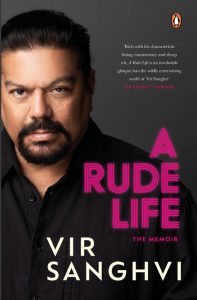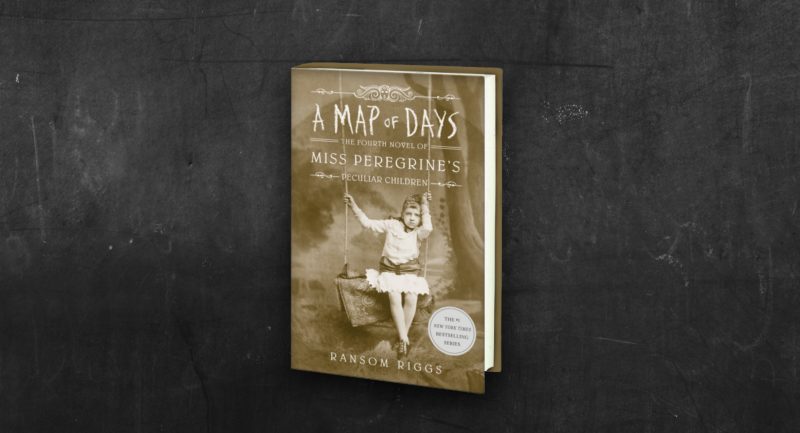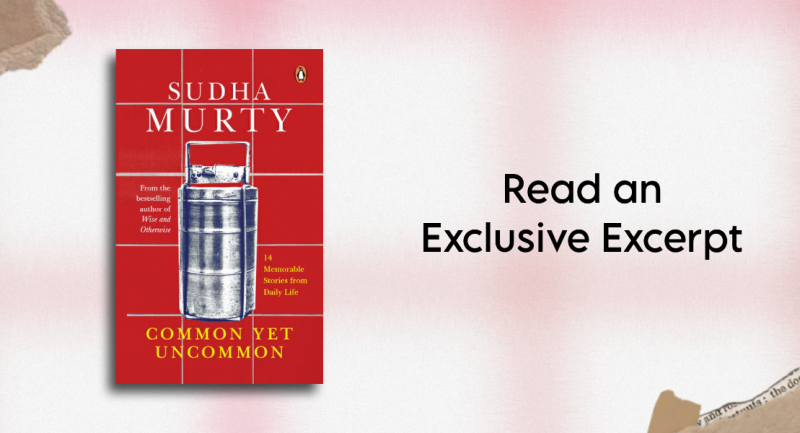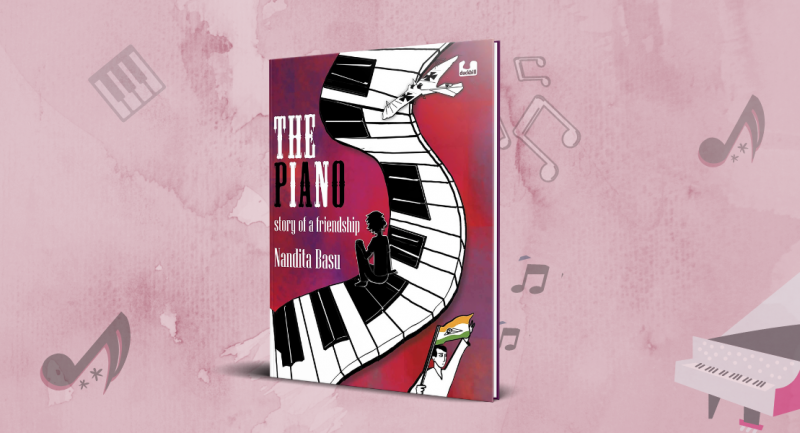
Vir Sanghvi’s has been an interesting life – one that took him to Oxford, movie and political journalism, television and magazines – and he depicts it with the silky polish his readers expect of him. In A Rude Life, he turns his dispassionate observer’s gaze on himself, and in taut prose tells us about all that he’s experienced, and nothing more for he’s still a private man.
He unhurriedly recounts memories from his childhood and college years, moving on to give us an understanding of how he wrote his biggest stories, while giving us an insider’s view into the politics, glamour and journalism of that time
Here’s a glimpse into his book.
~

A Rude Life
Vir Sanghvi
As Advani had predicted, the BJP did well but not as well as Janata. It got 85 seats while Janata got 143. (The Congress got 197, far more than any other party but around a hundred seats short of a majority.)
The BJP said it would support Janata but even together, the two parties did not have a majority. They needed another fifty seats and they got them when the Left parties agreed to support them from outside.
This three-cornered alliance was full of contradictions. The 1977–79 Janata government had fallen, at least partly, because Janata members objected to the Jan Sangh’s communal roots. The BJP was even more of a Hindu party now than the Jan Sangh had been in 1977. Would this not be a problem? And what about the Left? Was it comfortable being part of a three-cornered arrangement with the BJP?
The only person for whom the alliance made sense was L.K. Advani. He would be remembered, he believed, as the man who had taken the BJP from a mere two seats in parliament to being the kingmaker at the next election.
There was yet another complication. Janata was not the old Janata Party any longer. It was now the Janata Dal, composed of some of the old Janata veterans but supplemented by a new party of Congress defectors led by V.P. Singh and Arun Nehru. The two sides did not get along. Chandra Shekhar, from the old Janata, for instance, had total contempt for V.P. Singh whom he viewed as a characterless opportunist.
How was this all going to work?
I was deeply skeptical about the prospects of any arrangement lasting. Till that point, India had mostly been run by governments with majorities in the Lok Sabha. Mrs Gandhi had briefly lost her majority after the Congress split in 1969 but even though she knew that she could count on the communists to back her, she had called a mid-term election (where she won a majority) as soon as she could.
Our sole experience with coalitions was the disastrous 1977 to 1979 period when politicians frittered away the goodwill that had got them elected and forced the electorate to recall Indira Gandhi, her transgressions during the Emergency forgiven.
I did not believe that this government would last even for a year. Apart from the contradictions between the BJP and the Left, there were too many differences within the Janata Dal itself.
I went to meet Chandra Shekhar at his ‘ashram’ (a large estate; ‘ashram’ sounded nicer than ‘pleasure palace’) in Bhondsi on the outskirts of Delhi. I had known Chandra Shekhar during my Imprint days because a friend of mine, Kamal Morarka, was a dedicated Chandra Shekhar supporter who boosted his prospects even when the Rajiv wave was at its height.
Chandra Shekhar believed he should be prime minister. He had opposed the Emergency and later had been the centre of all opposition to Indira Gandhi. He believed that with the Congress out of power his time had finally come.
I told him I didn’t think he had the votes. Besides, V.P. Singh had led the campaign against Rajiv (Chandra Shekhar had refrained from personal attacks) so the media expected Singh to be the next prime minister. Chandra Shekhar did not agree with me but looked grim.
I have no idea what happened next but TV footage showed Chandra Shekar, Devi Lal (a Haryana leader) and others laughing delightedly before they went into the meeting of the Janata Dal parliamentary party. After the meeting was called to order, Chandra Shekhar was called on to speak. He said he proposed Devi Lal for prime minister.
Devi Lal was then asked to accept the nomination. He said that he was honoured to be nominated but felt that the position belonged to V.P. Singh.
V.P. Singh then got up. He did not nominate anyone else. He grabbed the job and ran with it.
Obviously some deal that excluded Chandra Shekhar had been struck. Devi Lal had agreed not only to accept V.P. Singh as prime minister, he had agreed to deceive Chandra Shekhar as well. They had made a fool of Chandra Shekhar in front of the parliamentary party and the TV cameras.
Afterwards, Chandra Shekhar told the press that he had been betrayed which may have been the understatement of the year. But even he did not realize how completely he had lost out. When the ministry was sworn in, Chandra Shekhar’s supporters were sidelined or kept out. Yashwant Sinha, who was told he was only a minister of state, walked out of the swearing in and drove straight to Bhondsi to confer with Chandra Shekhar.
I met Chandra Shekhar a few days later at his MP’s bungalow in Delhi. He was livid with V.P. Singh and with Arun Nehru who, he said, had plotted the deception. Oddly enough, he felt no rancour towards Devi Lal without whom none of this could have happened. The way Chandra Shekhar told it, V.P. Singh had publicly declared that he wanted no position. But his followers had made it clear that they would not accept Chandra Shekhar. So Devi Lal had been chosen as a compromise candidate.
Either, Arun Nehru took Devi Lal aside after the consensus was arranged and told him to give the job to V.P. Singh or the whole exercise was a con job from the very beginning, intended only to make a fool out of Chandra Shekhar. He preferred the first explanation. I thought the second was more likely.
The problem with V.P. Singh was that he was a little like Arvind Kejriwal is today. Financially upright, soft-spoken, competent and capable of evoking strong emotions among his supporters. But he was also a man without any core beliefs, without any long-term loyalty (except to one or two political friends) and without any transparency. Even Advani who was vilified by the secular media was a relatively straight person.
If he said he was going to do something, he usually did it. V.P. Singh, on the other hand, was capable of such duplicity that if you asked him what day of the week it was and he said Tuesday, the chances were that it was really Friday. But he was charming, intelligent and entirely plausible at first. I had admired him in my Imprint days and I could see why he was now such a hero to the media. But how long, I wondered, before the media discovered how hollow he was? How long before the early popularity faded?









